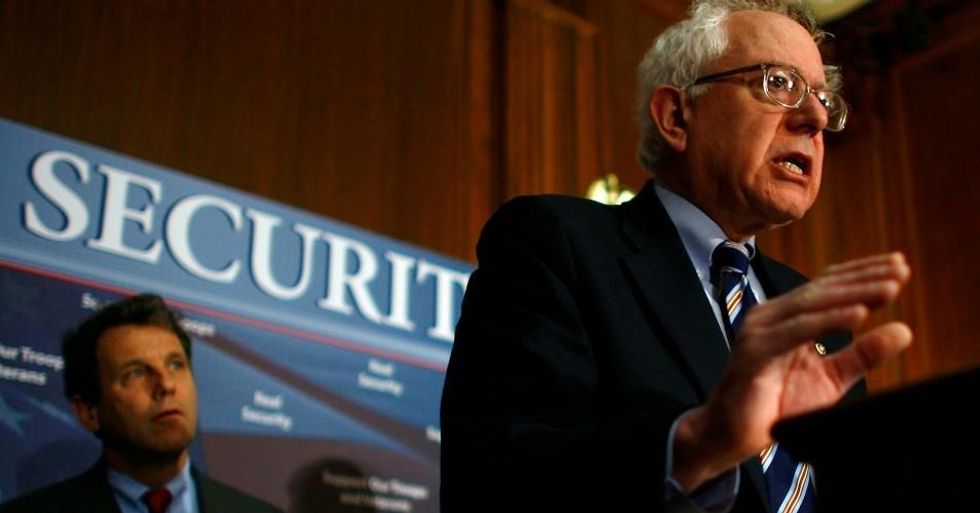Following last week's statements by White House budget chief Mick Mulvaney, regarding the "hierarchy" he established as a congressman to determine which lobbyists he treated favorably, Sen. Bernie Sanders (I-Vt.) and five Democratic lawmakers on Tuesday demanded a federal investigation into Mulvaney's political activities.
Mulvaney's remarks "reinforce the American public's worst fears about a corrupt Washington establishment that sells access and is rigged for special interests with teams of lobbyists and deep pockets," wrote the senators in a letter to the Office of the Special Counsel.
Speaking at a meeting of the American Bankers Association last week, Mulvaney, who is the interim head of the Consumer Financial Protection Bureau (CFPB) and well as running the Office of Management and Budget (OMB), told a crowd of financial executives, "We had a hierarchy in my office in Congress. If you're a lobbyist who never gave us money, I didn't talk to you. If you're a lobbyist who gave us money, I might talk to you."
The statement clearly implied that Mulvaney and other lawmakers who decide policies affecting big banks may be open to bribes, said critics including former Labor Secretary Robert Reich.
Sanders, along with Sens. Sherrod Brown (D-Ohio), Jeff Merkley (D-Ore.), Ron Wyden (D-Ore.), Dianne Feinstein (D-Calif.), and Catherine Cortez Masto (D-Nev.) argued in their letter that the statement's implication--that bankers wishing to further their own interests at the government agency dedicated to protecting consumers by regulating banks--may have violated the Hatch Act, which prohibits employees in the government's executive branch from soliciting political contributions.
While campaign finance rules make Mulvaney far from the only politician to give preferential treatment to his financial backers, his comments exemplified the worst of Washington's "pay-to-play" culture, critics like government watchdog Public Citizen said.
"Our 'We the People' republic depends on public officials serving the public, not using their public trust to consolidate power or enrich themselves or their associates, which is exactly why the Hatch Act exists," wrote the senators. "As we see in countries across the globe, the abuse of public office undermines governments' legitimacy and representative democracy."




